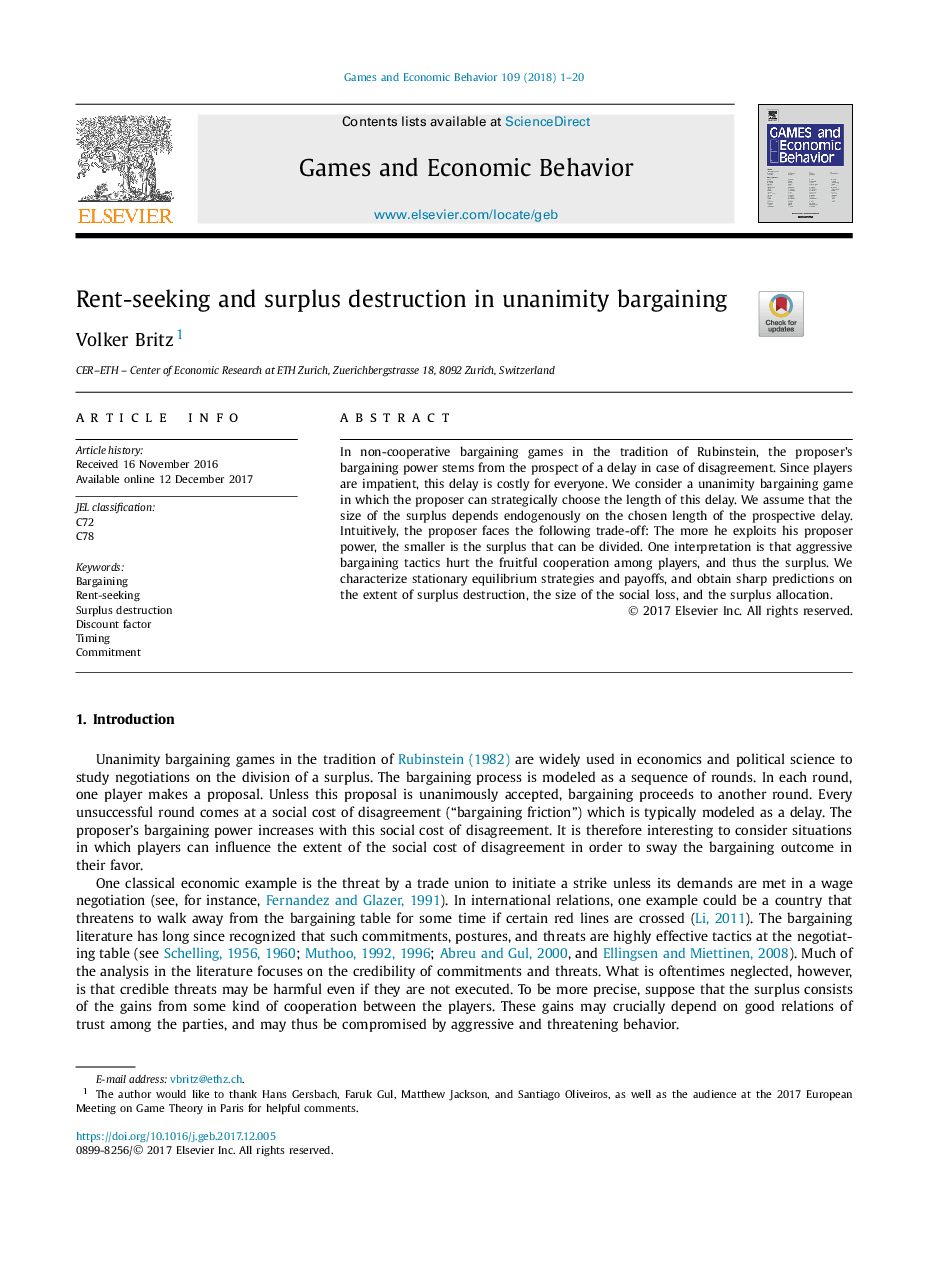| Article ID | Journal | Published Year | Pages | File Type |
|---|---|---|---|---|
| 7352812 | Games and Economic Behavior | 2018 | 20 Pages |
Abstract
In non-cooperative bargaining games in the tradition of Rubinstein, the proposer's bargaining power stems from the prospect of a delay in case of disagreement. Since players are impatient, this delay is costly for everyone. We consider a unanimity bargaining game in which the proposer can strategically choose the length of this delay. We assume that the size of the surplus depends endogenously on the chosen length of the prospective delay. Intuitively, the proposer faces the following trade-off: The more he exploits his proposer power, the smaller is the surplus that can be divided. One interpretation is that aggressive bargaining tactics hurt the fruitful cooperation among players, and thus the surplus. We characterize stationary equilibrium strategies and payoffs, and obtain sharp predictions on the extent of surplus destruction, the size of the social loss, and the surplus allocation.
Related Topics
Social Sciences and Humanities
Economics, Econometrics and Finance
Economics and Econometrics
Authors
Volker Britz,
